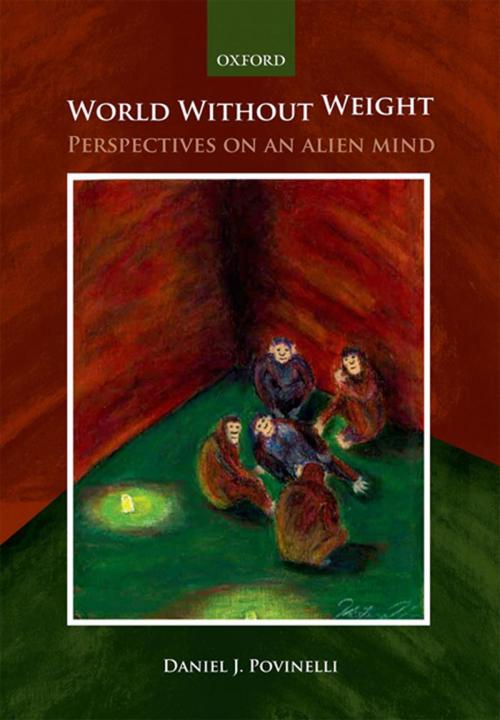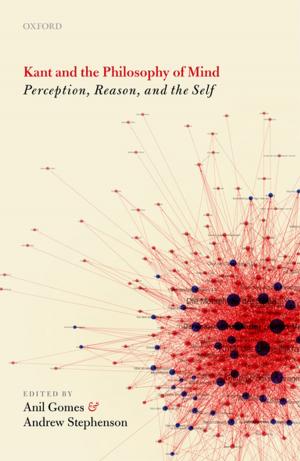World without weight:Perspectives on an alien mind
Perspectives on an alien mind
Nonfiction, Science & Nature, Science, Biological Sciences, Zoology, Religion & Spirituality, Philosophy, Health & Well Being, Psychology| Author: | Daniel Povinelli | ISBN: | 9780191625527 |
| Publisher: | OUP Oxford | Publication: | December 1, 2011 |
| Imprint: | OUP Oxford | Language: | English |
| Author: | Daniel Povinelli |
| ISBN: | 9780191625527 |
| Publisher: | OUP Oxford |
| Publication: | December 1, 2011 |
| Imprint: | OUP Oxford |
| Language: | English |
In every domain of reasoning-from time and space, to mental states and physical illness-humans deploy an exceedingly diverse range of intuitive 'theories' about how the world works. Children from diverse cultures always seem to arrive at a few, common folk theories as they hone their developing brains against roughly similar interactions with people and objects. The result is an impressive panoply of folk notions that the human species uses to explain, predict, and just plain talkabout everything from why the sky is blue, to why we catch a cold when we stand out in the rain. Unquestionably, all of this "higher-order" reasoning rests upon a diverse and complex tool-kit of "lower-order" neural and bodily mechanisms, much of which humans share in common with other species (andwhich, collectively, are quite clever in their right). But this book asks a different question: Are humans alone in trying to make sense of the world by postulating theoretical entities to explain how the world works?Povinelli and his colleagues approach this highly controversial territory by investigating the seemingly prosaic topic whether chimpanzees wield roughly the same commonsense ideas about weight that human do. When it comes to the physical world, they ask if chimpanzees reinterpret a broad range of primary experiences-lifting objects, seeing objects fall or collide, observing the differential effort others exert when they move objects-in terms of a common, causal mechanism which, inour everyday parlance, we refer to as 'weight.' The question is not whether chimpanzees have a theory about weight that's any better or worse than preschool children or Einstein or modern string theorists. The question is whether chimpanzees have any theories at all. And the answer comes in the formof over 30 never-before-published experiments from a decade-long research project involving seven adult chimpanzees and one hundred and twenty preschool children.Povinelli's work encourages us to stand back and adopt a different perspective on even our closest living relatives. Rather than seeing chimpanzees as watered-down versions of ourselves, this book challenges us to see our joint encounter for what it is: a meeting of alien minds.
In every domain of reasoning-from time and space, to mental states and physical illness-humans deploy an exceedingly diverse range of intuitive 'theories' about how the world works. Children from diverse cultures always seem to arrive at a few, common folk theories as they hone their developing brains against roughly similar interactions with people and objects. The result is an impressive panoply of folk notions that the human species uses to explain, predict, and just plain talkabout everything from why the sky is blue, to why we catch a cold when we stand out in the rain. Unquestionably, all of this "higher-order" reasoning rests upon a diverse and complex tool-kit of "lower-order" neural and bodily mechanisms, much of which humans share in common with other species (andwhich, collectively, are quite clever in their right). But this book asks a different question: Are humans alone in trying to make sense of the world by postulating theoretical entities to explain how the world works?Povinelli and his colleagues approach this highly controversial territory by investigating the seemingly prosaic topic whether chimpanzees wield roughly the same commonsense ideas about weight that human do. When it comes to the physical world, they ask if chimpanzees reinterpret a broad range of primary experiences-lifting objects, seeing objects fall or collide, observing the differential effort others exert when they move objects-in terms of a common, causal mechanism which, inour everyday parlance, we refer to as 'weight.' The question is not whether chimpanzees have a theory about weight that's any better or worse than preschool children or Einstein or modern string theorists. The question is whether chimpanzees have any theories at all. And the answer comes in the formof over 30 never-before-published experiments from a decade-long research project involving seven adult chimpanzees and one hundred and twenty preschool children.Povinelli's work encourages us to stand back and adopt a different perspective on even our closest living relatives. Rather than seeing chimpanzees as watered-down versions of ourselves, this book challenges us to see our joint encounter for what it is: a meeting of alien minds.















